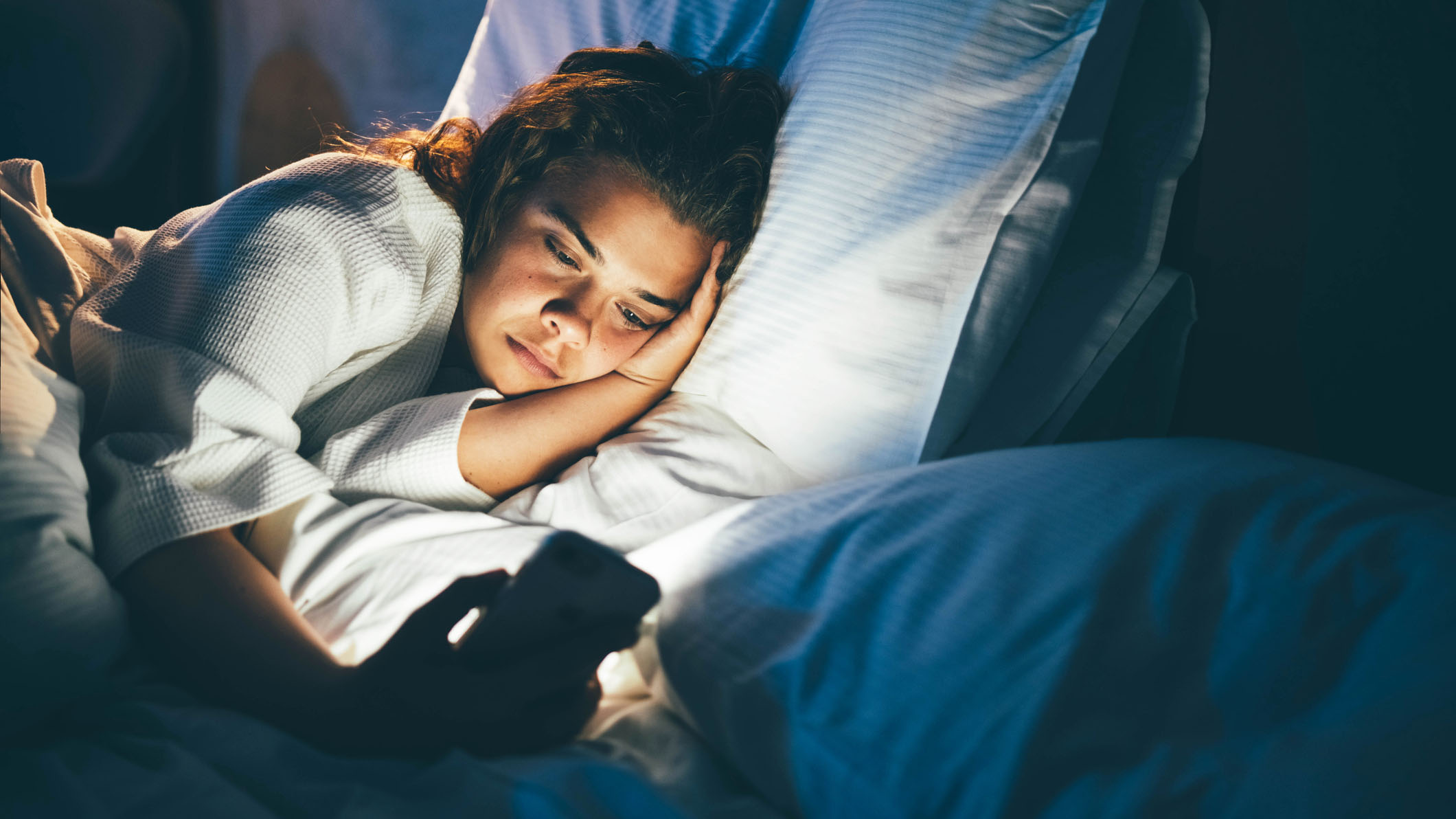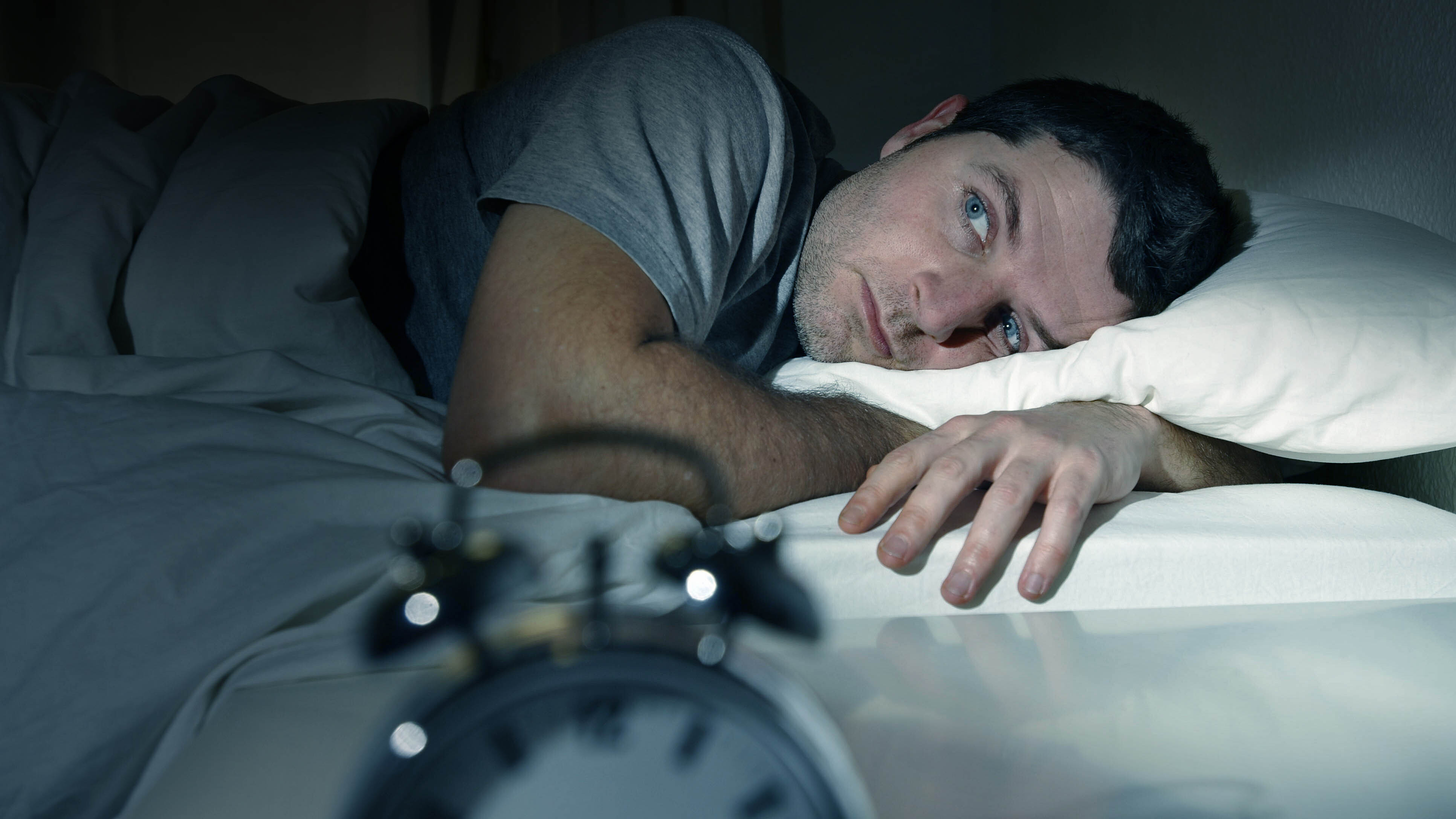How to stay asleep all night if you keep waking up — an expert explains
Sleep consultant explains how to sleep through the night and why night wakings happen to most people

Here at Tom’s Guide our expert editors are committed to bringing you the best news, reviews and guides to help you stay informed and ahead of the curve!
You are now subscribed
Your newsletter sign-up was successful
Want to add more newsletters?

Daily (Mon-Sun)
Tom's Guide Daily
Sign up to get the latest updates on all of your favorite content! From cutting-edge tech news and the hottest streaming buzz to unbeatable deals on the best products and in-depth reviews, we’ve got you covered.

Weekly on Thursday
Tom's AI Guide
Be AI savvy with your weekly newsletter summing up all the biggest AI news you need to know. Plus, analysis from our AI editor and tips on how to use the latest AI tools!

Weekly on Friday
Tom's iGuide
Unlock the vast world of Apple news straight to your inbox. With coverage on everything from exciting product launches to essential software updates, this is your go-to source for the latest updates on all the best Apple content.

Weekly on Monday
Tom's Streaming Guide
Our weekly newsletter is expertly crafted to immerse you in the world of streaming. Stay updated on the latest releases and our top recommendations across your favorite streaming platforms.
Join the club
Get full access to premium articles, exclusive features and a growing list of member rewards.
There’s no disputing that a good night’s sleep is vital for good health. Quality sleep improves our cognitive functions, keeps our immune systems healthy and our stress and weight-control hormones in check. Yet while many of us might not have too much difficulty drifting off to sleep, staying asleep all night is another matter. In fact, over a third of US adults report waking up in the night three times a week.
External factors like temperature, noise and light pollution and not sleeping on the best mattress for your body are barriers to staying asleep all night, along with internal problems such as stress or simply needing the bathroom. But what if you’re waking up for no reason at all? It’s more common than you think, so much so that sleep experts have given it a name: ‘Wakefulness After Sleep Onset’ or WASO.
Regular WASO incidents during the night and the length of time you’re awake during them affect your overall sleep quality. So given that night-waking is such a common problem, is it actually even possible to stay asleep all night? We spoke to sleep expert Maryanne Taylor, founder of The Sleep Works sleep consultancy, to find out…
- Read more: 3 sleep hygiene tips that got me back on track after endless nights of being unable to sleep
Reasons why you keep waking up at night
It’s beyond frustrating when you wake up in the night for no discerning reason, particularly if it happens regularly. “Many factors we’re not even aware of can cause night-waking,” says Maryanne. “Living in a fast-paced, ever-connected world can lead to mental overstimulation making it difficult for our brain to dial-down and for us to relax enough to facilitate restful, lasting sleep.

Increased levels of our stress hormone cortisol can unbalance the production of melatonin, our naturally occurring sleep hormone, too. Maryanne explains: "We need melatonin to help us fall asleep and stay asleep. Sometimes, our circadian rhythms, the body clock's natural sleep and waking cycles that are influenced by day and night, become disrupted without us even realising.
"This is often due to inconsistent bed-times and exposure to blue light from electronic devices in the evening," says the sleep expert. "Negative sleep association, where we’re worried or anxious about going to bed or falling asleep, can make night waking more likely too.”
How to stay asleep all night
Head to bed when you’re sleepy, not necessarily early: “From when we wake in the morning we build a homeostatic sleep-drive throughout the day which reaches its peak at bedtime. This is what enables us to fall asleep and stay asleep,” explains Maryanne. “Go to bed too early when this sleep drive isn’t at its highest level can make us less sleepy and impact our ability to fall asleep and stay asleep.”
Get instant access to breaking news, the hottest reviews, great deals and helpful tips.
Work on your boundaries: It’s vital to establish clear separation between work and personal life in the evenings. Here's why: “If you work from home, the lines can become blurred. Clearly defining the moment when the working day ends is so important for maintaining a healthy work-life balance and winding down ahead of sleep,“ explains Maryanne.
Optimise your sleep environment: It’s all about creating a space with minimal light and noise disturbances. “Keep the bedroom cool, use blackout blinds or curtains to minimise light pollution, and try white noise apps or earplugs to block out external noise.”
Is it even possible to sleep through the night?
So you’ve tried the expert advice above, but you’re still waking up. Is sleeping through the night really even possible?
"Our sleep cycles are designed to include brief wakings – historically, this enabled our ancestors to hear approaching predators or respond to environmental threats and take action to ensure their safety," explains Maryanne, "Our sleep architecture still remains the same, so we have natural, brief awakenings as we transition between sleep cycles during the night."
These awakenings are often so fleeting that we’re not fully aware they’ve happened or even remember them. "Factors such as age and lifestyle may influence these awakenings and younger people may experience fewer of them while older adults may be more conscious of it happening."

It’s important to recognise that a certain degree of night-waking is normal. “Sleep isn’t an exact science – we’re not robots. Throughout our lives there will be times where our sleep becomes more disrupted than others – periods of increased stress, worry or anxiety and illness. Our sleep needs are very individual and can vary significantly from person to person, taking into account factors such as age, genetics, lifestyle and our overall health,” she says.
We’re often told that eight hours' sleep is the gold standard. But research shows most of us don’t get anywhere near that. In fact, just over six hours sleep a night is the UK average for men and women.
“It can be detrimental for people to assume that if they haven’t had the ‘recommended’ eight hours, they haven’t had a good night sleep,” says Maryanne. “The quality of your sleep is just as crucial as the quantity.”
Expert tips on how to stay asleep all night
1. Get your sleep temperature right
Opting for the best temperature for sleeping could unlock your sleep potential. Setting your thermostat to around 18 degrees Celsius / 65 degrees Fahrenheit in your bedroom might seem chilly, however, due to fluctuations in body temperature during sleep cycles, it’s better to keep the temperature around that level and layer up with extra bedclothes rather than crank the heating up.
2. Manage racing thoughts
Processing the day you’ve had before you head to bed by jotting down your worries or concerns can be very helpful. This relieves the build-up of mental stress that whirling or ruminative thoughts can create, allowing you to relax more.

3. Keep stress in check
Persistent stress can be a significant contributor to sleep disturbances, so consider where your sources of stress might be coming from so you can explore some strategies to help manage them.
4. Take a bathroom break
If you often wake up needing the toilet, limit liquid intake in the evening, and avoid caffeine and alcohol. Both can act as diuretics, increasing urine production. Use a nightlight for night-time bathroom visits to maintain a sleepy environment to try to avoid fully waking up.
5. Move your body wisely
There’s no doubt regular exercise can help enhance sleep patterns. But it’s important to avoid rigorous, aerobic workouts within two to three hours of bedtime, this can increase adrenaline levels making it more difficult to wind down and therefore stay asleep. If you do wake up, don’t lie in bed tossing, turning or clock-watching – this can ramp up anxiety levels around getting back to sleep. Move to a different space and engage in a calming activity until sleepiness returns.

Bethan is a freelance journalist, brand consultant and copywriter, specialising in beauty, fashion, wellbeing, and health. She has over 17 years' experience working across print and digital platforms on national weekly, monthly and bi-monthly magazines, including Stylist online, Refinery29, Elle Australia, Grazia Australia, OK!, The Sunday Mirror, The Metro, Stella and Telegraph online, and more. Bethan has a keen interest in sleep and, crucially, how she somehow can get more of it.
 Club Benefits
Club Benefits










